- Home
- Tim Powers
On Stranger Tides
On Stranger Tides Read online
Page 1
Prologue
Though the evening breeze had chilled his back on the way across, it hadn't yet begun its nightly job of sweeping out from among the island's clustered vines and palm boles the humid air that the day had left behind, and Benjamin Hurwood's face was gleaming with sweat before the black man had led him even a dozen yards into the jungle. Hurwood hefted the machete that he gripped in his left - and only - hand, and peered uneasily into the darkness that seemed to crowd up behind the torchlit vegetation around them and overhead, for the stories he'd heard of cannibals and giant snakes seemed entirely plausible now, and it was difficult, despite recent experiences, to rely for safety on the collection of ox-tails and cloth bags and little statues that dangled from the other man's belt. In this primeval rain forest it didn't help to think of them as gardes and arrets and drogues rather than fetishes, or of his companion as a bocor rather than a witch doctor or shaman.
The black man gestured with the torch and looked back at him. "Left now," he said carefully in English, and then added rapidly in one of the debased French dialects of Haiti, "and step carefully - little streams have undercut the path in many places. "
"Walk more slowly, then, so I can see where you put your feet," replied Hurwood irritably in his fluent textbook French. He wondered how badly his hitherto perfect accent had suffered from the past month's exposure to so many odd variations of the language.
The path became steeper, and soon he had to sheathe his machete in order to have his hand free to grab branches and pull himself along, and for a while his heart was pounding so alarmingly that he thought it would burst, despite the protective drogue the black man had given him - then they had got above the level of the surrounding jungle and the sea breeze found them and he called to his companion to stop so that he could catch his breath in the fresh air and enjoy the coolness of it in his sopping white hair and damp shirt.
The breeze clattered and rustled in the palm branches below, and through a gap in the sparser trunks around him he could see water - a moonlight-speckled segment of the Tongue of the Ocean, across which the two of them had sailed from New Providence Island that afternoon. He remembered noticing the prominence they now stood on, and wondering about it, as he'd struggled to keep the sheet trimmed to his bad-tempered guide's satisfaction.
Andros Island it was called on the maps, but the people he'd been associating with lately generally called it Isle de Loas Bossals, which, he'd gathered, meant Island of Untamed (or, perhaps more closely, Evil) Ghosts (or, it sometimes seemed, Gods). Privately he thought of it as Persephone's shore, where he hoped to find, at long last, at least a window into the house of Hades.
He heard a gurgling behind him and turned in time to see his guide recorking one of the bottles. Sharp on the fresh air he could smell the rum. "Damn it," Hurwood snapped, "that's for the ghosts. "
The bocor shrugged. "Brought too much," he explained. "Too much, too many come. "
The one-armed man didn't answer, but wished once again that he knew enough - instead of just nearly enough - to do this alone.
"Nigh there now," said the bocor, tucking the bottle back into the leather bag slung from his shoulder.
They resumed their steady pace along the damp earth path, but Hurwood sensed a difference now - attention was being paid to them.
The black man sensed it too, and grinned back over his shoulder, exposing gums nearly as white as his teeth. "They smell the rum," he said.
"Are you sure it's not just those poor Indians?"
The man in front answered without looking back. "They still sleep. That's the loas you feel watching us. "
Though he knew there could be nothing out of the ordinary to see yet, the one-armed man glanced around, and it occurred to him for the first time that this really wasn't so incongruous a setting - these palm trees and this sea breeze probably didn't differ very much from what might be found in the Mediterranean, and this Caribbean island might be very like the island where, thousands of years ago, Odysseus performed almost exactly the same procedure they intended to perform tonight.
It was only after they reached the clearing at the top of the hill that Hurwood realized he'd all along been dreading it. There was nothing overtly sinister about the scene - a cleared patch of flattened dirt with a hut off to one side and, in the middle of the clearing, four poles holding up a small thatched roof over a wooden box - but Hurwood knew that there were two drugged Arawak Indians in the hut, and an oilcloth-lined six-foot trench on the far side of the little shelter.
The black man crossed to the sheltered box - the trone, or altar - and very carefully detached a few of the little statues from his belt and set them on it. He bowed, backed away, then straightened and turned to the other man, who had followed him to the center of the clearing. "You know what's next?" the black man asked.
Hurwood knew this was a test. "Sprinkle the rum and flour around the trench," he said, trying to sound confident.
"No," said the bocor, "next. Before that. " There was definite suspicion in his voice now.
"Oh, I know what you mean," said Hurwood, stalling for time as his mind raced. "I thought that went without saying. " What on earth did the man mean? Had Odysseus done anything first? No - nothing that got recorded, anyway. But of course Odysseus had lived back when magic was easy . . . and relatively uncorrupted. That must be it - a protective procedure must be necessary now with such a conspicuous action, to keep at bay any monsters that might be drawn to the agitation. "You're referring to the shielding measures. "
"Which consist of what?"
When strong magic still worked in the eastern hemisphere, what guards had been used? Pentagrams and circles. "The marks on the ground. "
The black man nodded, mollified. "Yes. The verver. " He carefully laid the torch on the ground and then fumbled in his pouch and came up with a little bag, from which he dug a pinch gray ash. "Flour of Guinee, we call this," he explained, then crouched and began sprinkling the stuff on the dirt in a complicated geometrical pattern.
The white man allowed himself to relax a little behind his confident pose. What a lot there was to learn from these people! Primitive they certainly were, but in touch with a living power that was just distorted history in more civilized regions.
"Here," said the bocor, unslinging his pouch and tossing it. "You can dispose of the flour and rum . . . and there's candy in there, too. The loos are partial to a bit of a sweet. "
Hurwood took the bag to the shallow trench - his torch-cast shadow stretching ahead of him to the clustered leaves that walled the clearing - and let it thump to the ground. He stooped to get the bottle of rum, uncorked it with his teeth and then straightened and walked slowly around the trench, splashing the aromatic liquor on the dirt. When he'd completed the circuit there was still a cupful left in the bottle, and he drank it before pitching the bottle away. There were also sacks of flour and candy balls in the bag, and he sprinkled these too around the trench, uncomfortably aware that his motions were like those of a sower irrigating and seeding a tract.
A metallic squeaking made him turn toward the hut, and the spectacle advancing toward him across the clearing - it was the bocor, straining to push a wheelbarrow in which were tumbled two unconscious dark-skinned bodies - awoke both horror and hope in him. Fleetingly he wished it didn't have to be human blood, that sheep's blood would serve, as it had in Odysseus' day - but he set his jaw and helped the bocor lever the bodies out onto the dirt so that their heads were conveniently close to the trench.
The bocor had a little paring knife, and held it toward the one-armed man. "You want to?"
Hurwood shook his head. "It's," he said hoarsely, "all yours. " He looked away and stared hard at the t
orch flame while the black man crouched over the bodies, and when, a few moments later, he heard the spatter and gush against the oilskin in the trench, he closed his eyes.
"The words now," said the bocor. He began chanting words in a dialect that combined the tongues of France, the Mondongo district of Africa, and the Carib Indians, while the white man, his eyes still closed, began chanting in archaic Hebrew.
The randomly counterpoint chanting grew gradually louder, as if in an attempt to drown out the new noises from the jungle: sounds like whispered giggling and weeping, and cautious rustling in the high branches, and a chitinous scraping like cast-off snakeskins being rubbed together.
Abruptly the two chanted litanies became identical, and the two men were speaking in perfect unison, syllable for syllable - though the white man was still speaking ancient Hebrew and the black man was still speaking his peculiar mix of tongues. Astonished by it even as he participated, Hurwood felt the first tremors of real awe at this impossibly prolonged coincidence. Over the sharp fumes of the spilled rum and the rusty reek of the blood there was suddenly a new smell, the hot-metal smell of magic, though far stronger now than he'd ever encountered it before . . .
And then all at once they were no longer alone - in fact, the clearing was crowded now with human-shaped forms that were nearly transparent to the torchlight, though the light was dimmed if a number of them overlapped in front of it, and all of these insubstantial things were crowding in toward the blood pit and crying out imploringly in tiny, chittering, birdlike voices. The two men let the chanting stop.
Other things, too, had appeared, though they didn't cross the ash lines the bocor had laid around the perimeter of the clearing, but simply peered from between the palm trunks or crouched on branches; Hurwood saw a calf with flaming eye sockets, a head hanging in midair with a ghastly pendulum of naked entrails dangling from its neck, and, in the trees, several little creatures who seemed to be more insect than human; and while the ghosts inside the verver lines kept up a ceaseless shrill chatter, the watchers outside were all silent.
The bocor was keeping the ghosts away from the trench with wide sweeps of his little knife. "Hurry!" he panted. "Find the one you want!"
Hurwood stepped up to the edge of the trench and scrutinized the filmy creatures.
Under his gaze a few of them became slightly more visible, like webs of egg white in heating water. "Benjamin!" called one of these, its scratchy frail voice rising over the background babble. "Benjamin, it's me, it's Peter! I was groomsman at your wedding, remember? Make him let me sup!"
The bocor looked questioningly at the other man.
Hurwood shook his head, and the bocor's knife flashed out and neatly razored the supplicating ghost in half; with a faint cry the thing dissolved like smoke.
"Ben!" screeched up another. "Bless you, son, you've brought refreshments for your father! I knew - "
"No," said Hurwood. His mouth was a straight line as the knife flashed out again and another lost wail flitted away on the breeze.
"Can't hold 'em back forever," panted the bocor.
"A little longer," Hurwood snapped. "Margaret!"
There was a curdling agitation off to one side, and then a cobwebby form drifted to the front. "Benjamin, how have you come here?"
"Margaret!" His cry was more one of pain than triumph. "Her," he snarled at the bocor. "Let her come up. "
The bocor quit the sweeping motion and began jabbing back all the shadows except the one Hurwood had indicated. The ghost approached the trench, then blurred and shrank and became clearly visible again in a kneeling posture. She reached out toward the blood, then halted and simply touched the fiour-and-rum paste on the rim. For a moment she was opaque in the torchlight, and her hand became substantial enough to roll one of the candy balls a few inches. "We shouldn't be here, Benjamin," she said, her voice a bit more resonant now.
"The blood, take the blood - " the one-armed man shouted, falling to his knees on the other side of the trench.
With no sound at all the ghost's form relaxed into smoke and blew away, though the cold blade hadn't come near her.
"Margaret!" the man roared, and dove over the trench into the massed ghosts; they gave way before him like spider webs strung between trees, and his jaw clacked shut against the hard-packed dirt. The ringing in his ears almost prevented him from hearing the chorus of dismayed ghost-voices fading away to silence.
After a few moments Hurwood sat up and squinted around. The torchlight was brighter, now that there were no ghost-forms to filter it.
The bocor was staring at him. "I hope it was worth it. "
Hurwood didn't answer, just got slowly, wearily to his feet, rubbing his scraped chin and pushing the damp white hair back out of his face. The monsters still stood and crouched and hung just outside the ash lines; evidently none of them had moved, or even blinked, probably, during the whole business.
"Entertained, were you?" shouted Hurwood in English, shaking his lone fist at them. "Dive over the trench again, shall I, just so you won't feel cheated?" His voice was getting tight and shrill, and he was blinking rapidly as he took a step toward the edge of the clearing, pointing at one of the watchers, a huge pig with a cluster of rooster heads sprouting from its neck. "Ah, you there, sir," Hurwood went on in a travesty of hearty friendliness, "do favor us with your frankest opinions. Would I have been better advised to do a spot of juggling instead? Or, perhaps, with face paint and a false nose - "
The bocor caught his elbow from behind and turned him around and stared at him with wonder and something that was almost pity. "Stop," he said softly. "Most of them can't hear, and I don't think any of them understand English. At sunrise they'll go away and we'll leave. "
Hurwood pulled free of the other man's grasp, walked back to the center of the clearing and sat down, not far from the trench and the two drained corpses. The hot-metal smell of magic was gone, but the breeze wasn't dispelling the blood-reek very much.

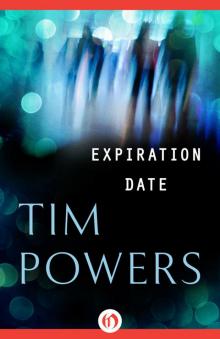 Expiration Date
Expiration Date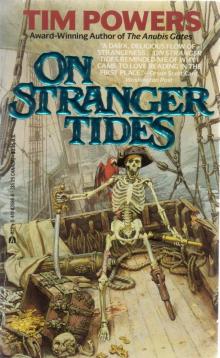 On Stranger Tides
On Stranger Tides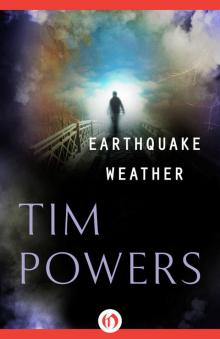 Earthquake Weather
Earthquake Weather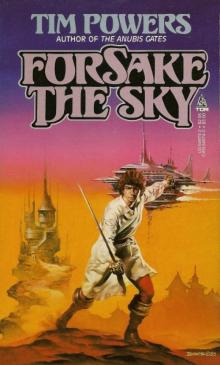 Forsake the Sky
Forsake the Sky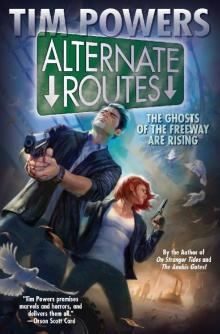 Alternate Routes
Alternate Routes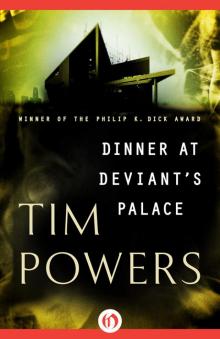 Dinner at Deviant's Palace
Dinner at Deviant's Palace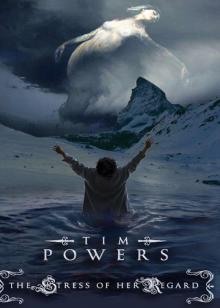 The Stress of Her Regard
The Stress of Her Regard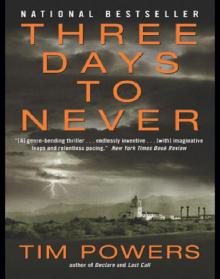 Three Days to Never: A Novel
Three Days to Never: A Novel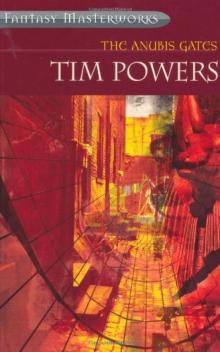 The Anubis Gates
The Anubis Gates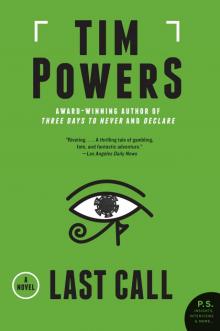 Last Call
Last Call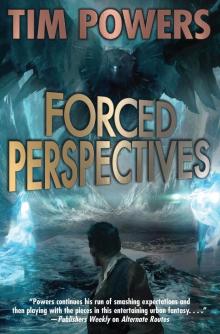 Forced Perspectives
Forced Perspectives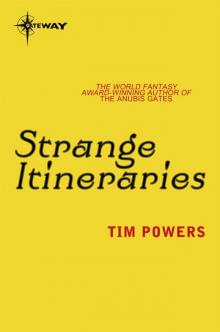 Strange Itineraries
Strange Itineraries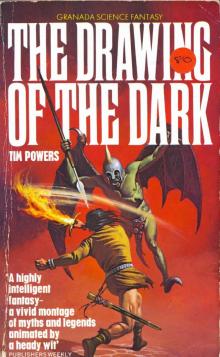 The Drawing of the Dark
The Drawing of the Dark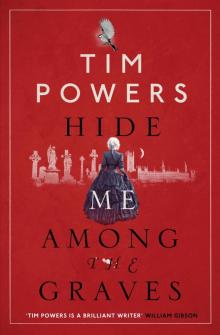 Hide Me Among the Graves
Hide Me Among the Graves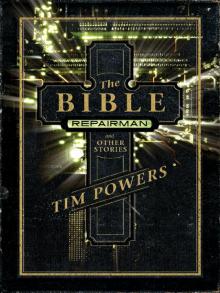 The Bible Repairman and Other Stories
The Bible Repairman and Other Stories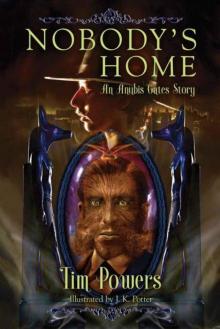 Nobody's Home: An Anubis Gates Story
Nobody's Home: An Anubis Gates Story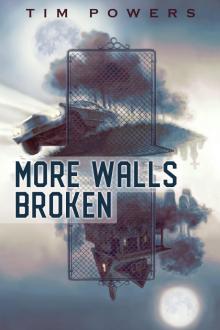 More Walls Broken
More Walls Broken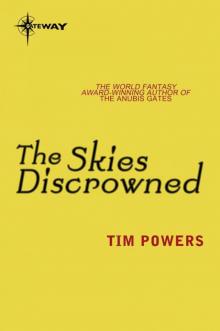 The Skies Discrowned
The Skies Discrowned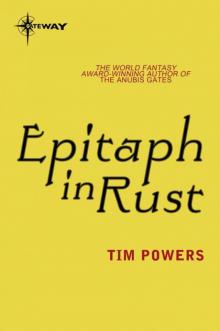 Epitaph in Rust
Epitaph in Rust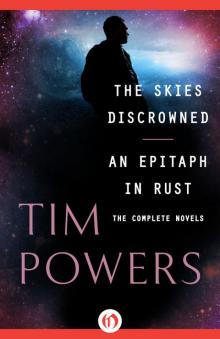 Skies Discrowned and An Epitaph in Rust
Skies Discrowned and An Epitaph in Rust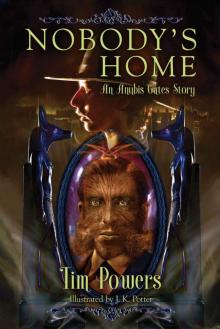 Nobody's Home
Nobody's Home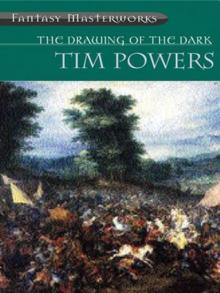 Drawing of the Dark
Drawing of the Dark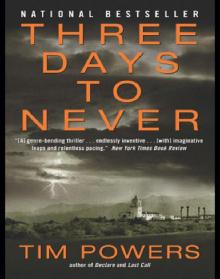 Three Days to Never
Three Days to Never